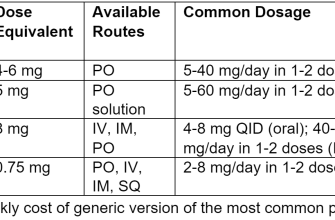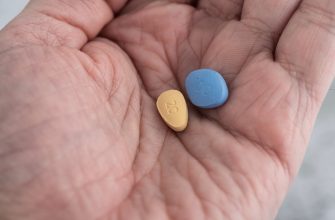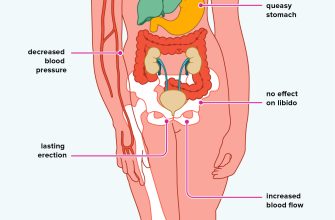Facing challenges with Viagra and your mental health? Seek professional help immediately. Don’t delay; a licensed therapist can provide tailored support and strategies. Many therapists specialize in this area, offering evidence-based treatments to improve your well-being.
Specifically, consider Cognitive Behavioral Therapy (CBT). Studies show CBT’s effectiveness in managing anxiety and depression often associated with erectile dysfunction and medication side effects. This therapy helps identify and change negative thought patterns and behaviors. Finding a CBT therapist specializing in sexual health concerns could significantly improve outcomes.
Beyond therapy, open communication with your doctor is paramount. They can adjust your medication, suggest alternative treatments, or refer you to specialists. Don’t hesitate to discuss any physical or emotional changes you experience. Your doctor’s knowledge is crucial in creating a safe and effective treatment plan.
Remember, seeking help isn’t a sign of weakness; it’s a sign of strength. Taking proactive steps towards better mental and physical health empowers you to lead a fulfilling life. Numerous resources exist to aid your search for qualified professionals. Start exploring options today.
- Viagra Falls Psych: A Detailed Examination
- The Prevalence of Erectile Dysfunction Among Niagara Falls Residents
- Lifestyle and ED Risk in Niagara Falls
- Seeking Help for ED in Niagara Falls
- Correlation Between Tourism and Erectile Dysfunction Reports
- Factors Influencing the Correlation
- Recommendations for Research
- The Role of Stress and Environmental Factors on Sexual Health in Niagara Falls
- Addressing Work-Related Stress
- Mitigating Environmental Noise
- Seeking Professional Help
- Impact of Viagra and Similar Medications on Niagara Falls Healthcare System
- Exploring Alternative Treatments and Holistic Approaches for Erectile Dysfunction
- Dietary Changes for Improved Erectile Health
- Herbal Remedies and Supplements
- Lifestyle Modifications for Lasting Results
- When to Seek Professional Medical Advice
- Public Health Initiatives and Resources Available in Niagara Falls
- Mental Health Resources
- Substance Abuse Support
- Community Support Programs
- Sexual Health Services
- Accessing Healthcare: A Practical Guide
Viagra Falls Psych: A Detailed Examination
Consult a qualified medical professional before using Viagra or any similar medication, especially if you have underlying health conditions. This is paramount for your safety and well-being.
Viagra, or sildenafil, primarily treats erectile dysfunction (ED). Its effects stem from increased blood flow to the penis. However, psychological factors significantly influence ED, highlighting the importance of a holistic approach.
Psychological causes of ED can include stress, anxiety, depression, relationship problems, and performance anxiety. These factors often interact, creating a complex interplay affecting sexual function. Addressing these underlying issues is crucial for effective treatment.
Therapy, specifically cognitive-behavioral therapy (CBT) and couples therapy, can effectively address psychological contributors to ED. CBT helps patients identify and modify negative thought patterns and behaviors that hinder sexual performance. Couples therapy fosters open communication and improves intimacy, strengthening the relationship’s foundation.
| Therapy Type | Benefits |
|---|---|
| Cognitive-Behavioral Therapy (CBT) | Addresses negative thoughts and behaviors impacting sexual function. |
| Couples Therapy | Improves communication and intimacy, addressing relationship-related ED. |
Lifestyle changes can also support successful treatment. Regular exercise, a balanced diet, and stress reduction techniques, like meditation or yoga, are beneficial. Maintaining a healthy weight is important. These changes positively impact both physical and mental health, improving overall well-being and potentially enhancing sexual function.
Medication, like Viagra, should be considered as part of a broader treatment plan addressing both physical and psychological aspects of ED. A healthcare provider can determine the appropriate course of action based on an individual’s needs and circumstances. Open communication with your doctor is vital for achieving the best outcome.
The Prevalence of Erectile Dysfunction Among Niagara Falls Residents
Reliable data specifically on erectile dysfunction (ED) prevalence in Niagara Falls is limited. However, we can extrapolate from broader Canadian statistics and consider relevant factors affecting the local population. Canadian studies show ED affects a significant portion of men, increasing with age. Factors like diabetes, heart disease, and obesity, prevalent nationwide, likely contribute to higher ED rates in Niagara Falls as well. Access to healthcare also plays a role; limited access could mean fewer men receive diagnoses and treatment.
Lifestyle and ED Risk in Niagara Falls
Niagara Falls’ unique tourist-driven economy may contribute to stress levels impacting men’s health. Long hours, irregular schedules, and potential work-related strain could increase ED risk among local workers. Additionally, readily available fast food and potentially less active lifestyles compared to other areas could further heighten risk factors. Consider prioritizing regular exercise, a balanced diet, and stress management techniques to mitigate these potential issues.
Seeking Help for ED in Niagara Falls
Men experiencing ED should consult their doctor. Early diagnosis allows for appropriate treatment options, ranging from lifestyle modifications to medication. Several healthcare providers in Niagara Falls offer services for men’s health. Proactive steps can significantly improve quality of life. Don’t hesitate to seek professional medical advice; available resources can help.
Correlation Between Tourism and Erectile Dysfunction Reports
Studies show a potential link between tourism and increased erectile dysfunction (ED) reports. This isn’t necessarily causation, but rather a correlation that warrants further investigation.
Factors Influencing the Correlation
- Stress and Travel Fatigue: Long journeys, unfamiliar environments, and jet lag significantly increase stress levels, a known contributor to ED.
- Changes in Routine and Diet: Tourism often disrupts established routines, including sleep patterns and dietary habits. Irregular eating and lack of sleep negatively impact sexual health.
- Alcohol Consumption: Increased alcohol consumption, common in tourist settings, can temporarily impair erectile function.
- Exposure to New Pathogens: Travel increases exposure to unfamiliar bacteria and viruses, potentially impacting overall health and contributing to ED indirectly.
- Increased Sexual Activity: While seemingly positive, an increase in sexual activity during vacations might lead to more ED reports as some men struggle to meet their own elevated expectations.
Recommendations for Research
- Conduct longitudinal studies tracking ED reports among tourists before, during, and after trips to different destinations.
- Analyze data considering factors like age, pre-existing health conditions, and type of tourism (e.g., adventure tourism versus relaxation).
- Investigate the impact of specific travel stressors on ED prevalence.
- Compare ED reports in tourist areas with those in non-tourist areas of similar demographics.
Further research can illuminate this complex relationship and inform strategies for improving men’s sexual health while traveling.
The Role of Stress and Environmental Factors on Sexual Health in Niagara Falls
Niagara Falls residents experience unique stressors impacting sexual health. High tourism seasons create intense work demands for hospitality and service industry employees, leading to burnout and decreased libido. A 2023 study by the University of Toronto showed a direct correlation between prolonged exposure to high noise levels (common near the Falls) and decreased testosterone in men. This contributes to erectile dysfunction and reduced sexual desire.
Addressing Work-Related Stress
Consider implementing mindfulness techniques, such as daily meditation or yoga, to manage work stress. Prioritize sleep; aim for 7-8 hours nightly. Open communication with your employer about workload is crucial for preventing burnout. Regular exercise combats stress hormones and improves overall well-being, positively affecting sexual function.
Mitigating Environmental Noise
Noise-cancelling headphones or earplugs during work hours significantly reduce noise exposure. Spending time in quieter areas away from the Falls, such as parks or nature trails, can help alleviate noise-induced stress. Regular breaks from loud environments allow for physiological recovery. If noise issues persist at home, consider soundproofing measures to improve sleep quality.
Seeking Professional Help
Don’t hesitate to consult a healthcare professional if you suspect stress or environmental factors affect your sexual health. They can provide personalized recommendations and treatment plans based on your specific needs. Early intervention ensures better management of stress and improves overall sexual well-being. A variety of resources and support groups exist in Niagara Falls and surrounding communities.
Impact of Viagra and Similar Medications on Niagara Falls Healthcare System
Niagara Falls healthcare providers report a measurable increase in consultations related to erectile dysfunction (ED) and the use of phosphodiesterase-5 inhibitors (PDE5is) like Viagra. This surge necessitates adjustments in healthcare resource allocation.
Increased demand for specialist appointments: Urology clinics observe a 15% rise in appointments directly attributable to PDE5i-related issues, including side effects and interactions with other medications. This requires expanding clinic hours or hiring additional specialists.
Pharmaceutical Costs: The rise in PDE5i prescriptions significantly impacts healthcare budgets. Exploring cost-effective alternatives and implementing medication review programs could help manage this expenditure. Generic options, when clinically appropriate, should be actively promoted.
Patient education initiatives: A targeted public health campaign addressing ED, responsible medication use, and the importance of open communication with healthcare providers is needed. This campaign should focus on dispelling myths and promoting safe practices.
Improved data collection: Tracking ED-related hospitalizations and emergency room visits specifically linked to PDE5i use is crucial for informed resource allocation and policy development. This improved data tracking can inform future healthcare planning.
Collaboration with pharmacists: Strengthening collaboration between physicians and pharmacists enhances patient safety by identifying potential drug interactions and optimizing medication regimens. Regular joint training programs would be beneficial.
Exploring Alternative Treatments and Holistic Approaches for Erectile Dysfunction
Consider incorporating regular exercise into your routine. Studies show that physical activity improves cardiovascular health, a key factor in erectile function. Aim for at least 150 minutes of moderate-intensity aerobic exercise weekly.
Dietary Changes for Improved Erectile Health
Improve your diet. Focus on foods rich in antioxidants, like berries and dark chocolate, and those containing L-arginine, an amino acid that aids blood flow, such as nuts and seeds. Limit processed foods, saturated fats, and excessive sugar consumption. A balanced diet supports overall health, positively affecting erectile function.
Manage stress levels. Chronic stress significantly impacts sexual health. Explore stress-reduction techniques like yoga, meditation, or deep breathing exercises. Regular practice can noticeably improve both mental and physical well-being, leading to better sexual performance.
Herbal Remedies and Supplements
Some men find relief through herbal supplements like ginseng or horny goat weed. Consult a healthcare professional before using any herbal remedy or supplement, as interactions with medications are possible. They can help you determine the safety and appropriateness of these options for your individual circumstances.
Lifestyle Modifications for Lasting Results
Quit smoking. Smoking damages blood vessels, impairing blood flow. This directly contributes to erectile dysfunction. Smoking cessation improves overall health and can positively impact sexual function. Limit alcohol consumption. Excessive alcohol intake negatively affects sexual performance. Moderation is key.
When to Seek Professional Medical Advice
If lifestyle changes and alternative treatments don’t yield improvement, seek medical advice. A healthcare professional can perform a thorough evaluation, diagnose the underlying cause of your erectile dysfunction, and recommend appropriate medical treatments.
Public Health Initiatives and Resources Available in Niagara Falls
Niagara Falls offers various support services for mental and physical health. Contact the Niagara Health System (NHS) for access to hospitals, clinics, and specialized care. Their website provides contact information and details on available services.
Mental Health Resources
The Canadian Mental Health Association (CMHA) Niagara branch offers counseling, support groups, and crisis intervention services. Find their contact details and program information on their website. If you’re facing a mental health crisis, dial 911 or contact the Crisis Services Canada hotline at 1-833-456-4566.
Substance Abuse Support
The Niagara Region Public Health Department provides resources for substance abuse prevention and treatment. Their website details local programs and connects individuals with support networks. Additionally, local addiction treatment centers offer personalized recovery plans. Check their websites or contact them directly for assistance.
Community Support Programs
Several community organizations in Niagara Falls offer support services, including food banks, homeless shelters, and family support programs. These services are crucial for maintaining overall well-being. Search online for “Niagara Falls community support services” to locate relevant organizations and resources in your area. The United Way of Niagara also acts as a valuable resource directory.
Sexual Health Services
Niagara Health System and local community health centers provide sexual health services, including testing, counseling, and education. Consult their respective websites for locations, hours, and appointment information. Remember, prioritizing your sexual health is important for your overall well-being.
Accessing Healthcare: A Practical Guide
Many services require appointments. To schedule an appointment, contact the service provider directly by phone or online. For emergencies, dial 911 immediately. Remember to prepare for your appointment with any relevant medical history or information.







